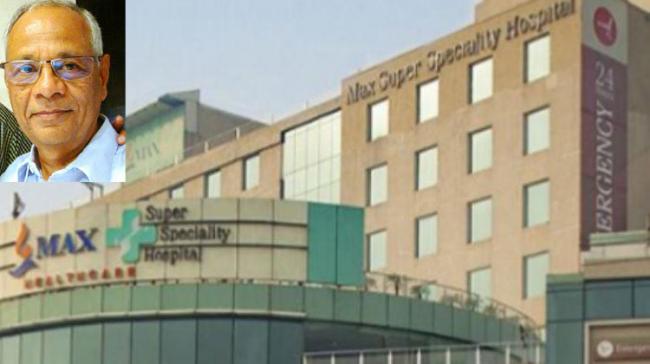Govt Or Corporate Hospital, Only Political Will Can Improve Healthcare

Mahesh Vijapurkar
There’s a lot of hullaballoo about delicensing a hospital in Delhi and less so about the Haryana government cancelling the lease of the land on which a hospital stands. The latter event is a little less loud, but the fact is that two governments have acted against two major hospitals, one for certifying a new-born dead when alive, and another for huge bills for a dengue patient including billing for an astronomically large number of syringes.
In the case of Delhi hospital, withdrawing the license is seen as leaving the inpatients in the lurch, which it is not. Patients already undergoing treatment would continue to till discharge in proper time. The implications of the Haryana decision are more or less the same. Now, a debate would rage if the government did well in acting the way it did. In Delhi’s instance, the alternative suggested is single out the individuals involved, not the entire body corporate.
We have not seen the end of the story yet. There is bound to be court battles, and it is hard to conceive which way the judges would decide, but huge hospitals, especially a chain, cannot afford to have a stigma attached and would fight till the last breath, as it were.
However, my contention is simple: it is time the private medicare system which is moving largely into the clutches of corporates, is firmly reined in. They should not be allowed to run away with the practices.
In recent times, we have known that hospitals overcharge for almost everything, implants for cardiac and orthopaedic cases to huge profiteering even in syringes. These, apart from high charges for most every think, including the cursory visit of a doctor to an in-patient. Often, anecdotally, patients are not discharged before a weekend to keep the beds occupied. It would, however, be wrong to focus only on the private sector hospitals.
The governments which ought to act against the private sector’s practices should also look at itself in the mirror and find out why the private sector is ballooning while the publicly funded medicare system is driving patients to the unaffordable private sector. The Times of India has today cited National Health Profile findings. One in four of rural households and one in five of their urban counterparts are “forced to borrow” to pay hospital costs.
This apparently included even if the publicly funded facilities are free or near free, the out of pocket expenses could be ruinous to many. An interesting point made was that states with higher per capita spending on healthcare and robust network of facilities showed lower level of borrowings. That explains how it is not just the private hospitals which play havoc with economics of families but the state governments themselves do.
Poor facilities, poor diagnosis and poor treatment, absence of easy geographic access, are the hallmarks of the public healthcare system. In fact, it is the worst kept public secret in India. It is as if nobody cares, which, in fact is the case. Governments unsuccessfully battle to even have the newly graduated doctors from medical colleges to go to the rural areas where, some seniors in the medical profession tell me, there is a lot to be learnt there than in medical colleges alone.
The shock-and-awe moves of Delhi and Haryana governments may be frowned at, but the point is who is going to demand the various other state governments that they secure the same standards of probity and efficiency of the medical system they run in their respective states? Delhi which admittedly has provided a nice network of affordable mohalla clinics but not widely reported by the media seems to be on the right foot: run their system well and ask others to too.




